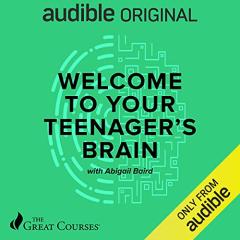Abigail A. Baird

Professor Baird’s research examines the brain and behavioral basis of adolescent development. Her work examines the ways in which social, emotional, cognitive, and brain-based factors drive the processes by which adolescents become adults. The long-term goal of this work is to better identify and prevent psychopathology; and further to inform legal and educational policy.
Abigail A. Baird is a Professor of Psychology at Vassar College and the Principal Investigator of the Laboratory for Adolescent Science. She earned her undergraduate degree from Vassar College and both an MA and a PhD from Harvard University.
Professor Baird’s research examines the brain and behavioral basis of adolescent development. Her work examines the ways in which social, emotional, cognitive, and brain-based factors drive the processes by which adolescents become adults. The long-term goal of this work is to better identify and prevent psychopathology; and further to inform legal and educational policy.
Professor Baird is the author of two books and has published numerous peer-reviewed and popular press articles. Her research has received awards from Harvard University and the Society for Research on Psychopathology. She has been elected to several scientific societies including the International Society for Behavioral Neuroscience and the Dana Alliance for Brain Initiatives. Her professional accomplishments also include serving as Secretary of the Association for Psychological Science, Invited Faculty to the New York State Judicial Institute and Advisory Board member on the Campaign for Youth Justice. She has been a consistent participant in the American Association for the Advancement of Science’s Award Winning Neuroscience Educational Program for members of the judicial system. Her work on adolescent brain development contributed to the Amicus Briefs that helped the United States Supreme Court to abolish the Death Penalty for Juveniles, and more recently abolish Life Sentences without the Possibility of Parole for Juveniles. Following this work Baird was elected to the National Committee on Lawyers and Scientist, a joint committee between the American Association for the Advancement of Science (AAAS) and the American Bar Association (ABA) that serves to advise national policy at the intersection of science and law.
She is the recipient of Harvard’s George Goethals Teaching Prize, as well as the Class of 1962 Excellence in Teaching Fellowship, awarded by Dartmouth College. In 2012 Baird (along with colleague Craig Bennett) was awarded the prestigious Ig Nobel Prize in Neuroscience; a prize awarded by previous Nobel Laureates for “science that first makes people laugh and then makes them think”.
Professor Baird has appeared on a number of radio and television programs, including two episodes of National Geographic’s Emmy Nominated show Brain Games. She has also been featured as an expert in several documentaries including, most recently, HBO’s Beware the Slenderman, a documentary that tells the story of two 12-year old girls, who are being tried as adults for attempting to murder one of their friends in order to appease a fictional monster from the internet.
Departments and Programs
Courses
PSYC 105 Introduction to Psychological Science
PSYC 243 Topics in Physiological Psychology
STS 303 Senior Thesis
Selected Publications

Baird, A.A. (2021) “Welcome to your teenager's brain.” Audible Originals.
Baird, A.A., Roellke, E.V., & Zeifman, D. M. (2017). “Alone and adrift: The association between mass school shootings, school size, and student support.” The Social Science Journal, 54, 1-10.
Baird, A. A. & Roellke, E. V. (2015). “Girl Uninterrupted: The neural basis of moral development among adolescent females,” in Decety, J. & Wheatley, T. (Eds.) The Moral Brain: A Multidisciplinary Perspective. Cambridge, MA: MIT Press.
Baird, A.A., Barrow, C.L., Richard, M.K. (2012). “Juvenile neuroLaw: When it’s good it is very good indeed, and when it's bad it’s horrid.” Journal of Health Care Law and Policy, 15(1), 15-35.
Baird, A.A., Silver, S.H., & Veague, H.B. (2010). “Cognitive control reduces sensitivity to relational aggression among adolescent girls.” Social Neuroscience, 5(5-6), 519–532.
In the Media
Photos
Download images for non-commercial use, photo credit required.


